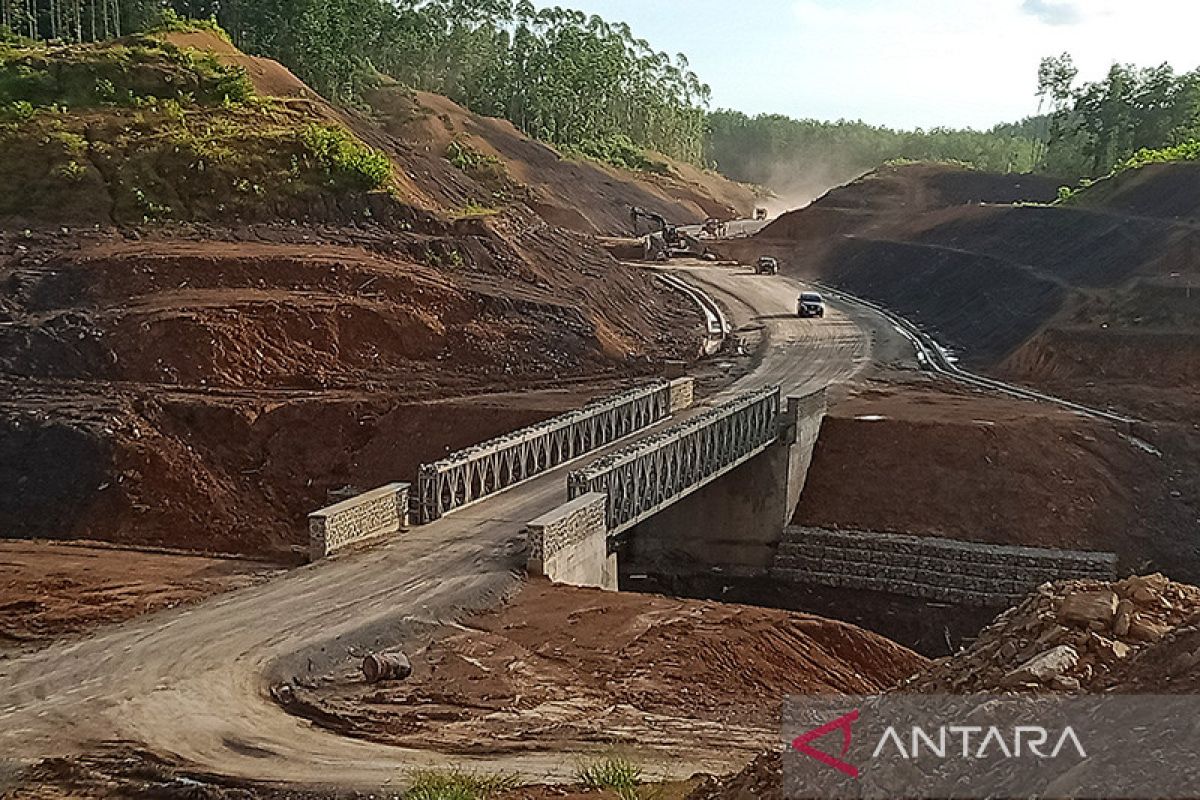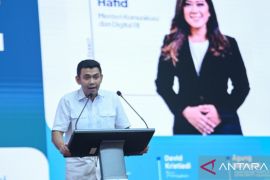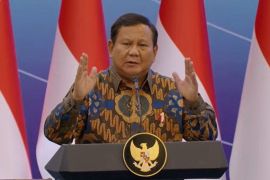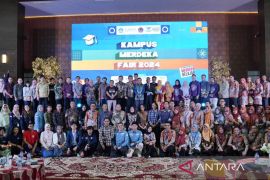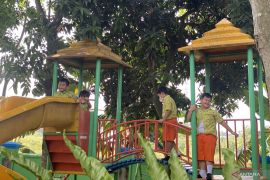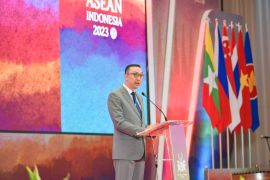IKN Nusantara is projected to become the future capital city for Indonesia and will be able to exemplify the country motto of "Bhinneka Tunggal Ika".
The government is also targeting IKN Nusantara to become one of the most sustainable cities not only at the Asian level but also worldwide, with the incorporation of various development concepts.
The development of IKN Nusantara prioritizes livable aspects by considering five elements of a future modern city: green, intelligent, inclusive, resilient, and sustainable.
These five elements are expected to make the new capital city nature-friendly and human-oriented, as well as have excellent access and quality urban services.
IKN Nusantara is also designed as a smart city that will be supported by advanced technology in various fields, including in the management of water resources and waste disposal.
These various government plans are an effort to realize the vision of Golden Indonesia 2045 by becoming a high-income nation and be included in the top five economic powers in the world.
The goal of becoming a developed country will be realized with the capital city transfer and construction of IKN Nusantara carried out in Kalimantan that is also considered to be significant in creating safe and equitable economic growth.
The burden has, so far, been on the island of Java as Indonesia's economic hub. Hence, the capital city relocation can ease the heavy structural burden that has long been borne by the capital city of Jakarta.
Related news: Bigger, better incentives for investment in Nusantara: minister
Quality human resources
Along with Indonesia's dream of becoming a developed country through IKN Nusantara, the government has also built one of the important parts for this goal of human resources (HR) at all levels of society.
The government is aggressively improving the quality of Indonesian HR through various efforts to maximize their competitiveness and add greater value to various potential economic activities.
In addition, the development of IKN Nusantara requires competent HR, with an understanding of the basic principles of building a smart city, including having a sharp analysis in problem solving.
Educational transformation is also conducted by the Ministry of Education, Culture, Research, and Technology (Kemendikbudristek) as an effort to improve the quality of HR through the Independent Learning Program.
Through this program, the ministry addresses several aspects in the form of improving policies, procedures, and funding, as well as granting greater autonomy to educational units.
Moreover, the ministry helps to improve the curriculum, pedagogy, and assessment systems, to educational infrastructure and supporting technology, since all aspects of life have been touched by digital technology.
The Independent Learning Program, which has reached seven episodes, is being held through the Assessment Program, the Independent Campus, Flexibility and autonomy of school operational assistance (BOS) funds, Mobilizing Organizations Program, Mobilizing Teachers for the transformation of higher education funds, Mobilizing Schools, and Matching Funds.
Until now, 508 out of the 514 districts in Indonesia have participated in the Mobilization School Program, with 14,239 schools participating in this program.
The Independent Curriculum has been implemented by 156,937 schools, with 56,457 teachers participating as initiator teachers.
The Matching Fund, which is the ministry's program to encourage the industry to invest in higher education, has managed to raise funds of Rp1.24 trillion through the Kedaireka collaboration project.
Later, the investment will be used for research and innovation conducted by universities to produce higher quality human resources.
Not only higher education but the industry has also invested in vocational schools, with investment value, amounting to Rp439.2 trillion, through the vocational school Matching Fund Program involving 349 industries and 373 vocational schools (SMK).
The industry has also invested Rp94.5 billion in vocational education through the Vocational Education Matching Fund Program involving 241 industry partners.
In addition, the ministry is striving to equalize the quality of education in each school for the Indonesian people by utilizing digital technology, especially for students in remote areas.
A total of 71,991 formal schools have received 1,253,074 information and communication technology (ICT) aids from 2020 to 2022 in the form of laptops to projectors.
The ministry also provides free digital education platforms: the Independent Teaching Platform, Independent Campus, School Resources, Education Report Card Profiles, Data Management, and Infrastructure.
The ministry’s efforts to digitize education seem to be successful as now, over 2.08 million teachers from 150,731 schools have logged in and implemented the Independent Teaching Platform.
Apart from the Independent Teaching Platform, the School Activity Plan and Budget (RKAS) application, namely ARKAS, has also been downloaded and implemented by 217 thousand, or 99 percent of active education institutions.
Moreover, the SIP application, which is an e-commerce application for spending BOS funds, is also used by 230,515 educational units, with Rp11.2 trillion of BOS funds being spent through this application.
The latest application developed by the ministry to digitize schools is TanyaBOS, which now has 16,456 active visitors asking questions on the forum, with 5,315 topics being broadcast.
Apart from the digital field, the ministry has also distributed 16,868,247 copies of books to 57,087 educational units, both in the underdeveloped, frontier, and outermost (3T) and non-3T areas in 554 districts and cities in Indonesia.
Related news: PUPR Ministry allocates Rp10.38 trillion for IKN development in 2023
Strengthening local HR
The government's efforts to improve the quality of human resources in IKN Nusantara and supporting areas have not gone unnoticed.
Improving the competence of East Kalimantan's human resources is urgently needed in the development of the new capital city, especially to provide a multiplier effect on development in the region.
This step was taken through synergy between the regional government and central government, such as by conducting trainings in various fields, comprising agriculture, fisheries, animal husbandry, and marine affairs.
The training was conducted through informal and formal education imparted via collaboration with related agencies, the Provincial Government of East Kalimantan, ministries, and universities.
The North Penajam Paser District Government distributed scholarships to 450 students in April 2022 that should have been done in 2021, with a budget of Rp2.3 billion.
In addition, several campuses will be built to encourage an improvement in the quality of human resources for the people of East Kalimantan and the IKN supporting areas.
For instance, the Yogyakarta Sanata Dharma Foundation will build a campus in Sepaku, North Penajam Paser District (PPU), namely the Sanata Dharma University.
Gunadarma University also plans to build a campus, spanning an area of 18 hectares, in the North Penajam Paser District.
Researcher from the Center for Indonesian Policy Studies (CIPS) Nadia Fairuza said that inclusive education would support in developing the quality of East Kalimantan's local human resources.
This effort will be achieved if ministries of the governments, such as the Ministry of Public Works and Public Housing and the Ministry of Communication and Informatics, immediately intensify the development of educational infrastructure, including internet access.
With an inclusive education policy for all, local residents in the IKN Nusantara area can make the most of the opportunities to improve their welfare in the future.
Related news: Ministry, DPR readying health facilities in new capital Nusantara
Related news: Some 15 million trees to be planted in Nusantara capital forest
Editor: Yuni Arisandy Sinaga
Copyright © ANTARA 2023
